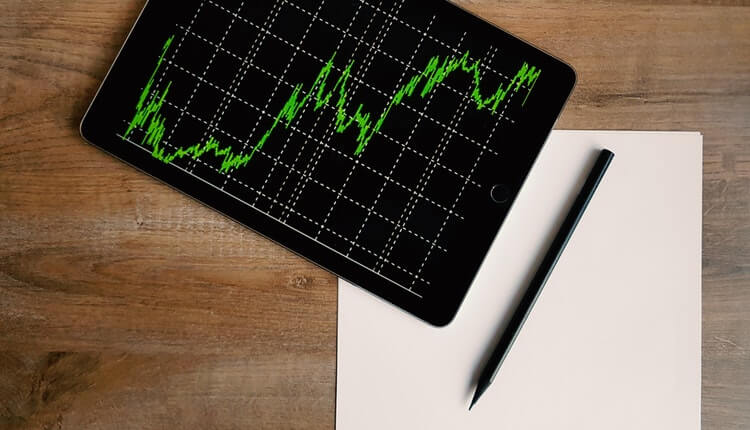Today, more and more, you have access to everything! From the right solutions to terrible investment solutions. If you have to list what you have to invest your savings, it will easily take your full day. On the other hand, if there is one sector in which you should NEVER invest in, it is the stock market sector.
Liquid and available savings, good yields, and attractive performance, attractive taxation, all these things make the stock market the type of investment you should avoid. Why would you want to diversify your savings? Why want to take advantage of the right remuneration conditions? Why invest in the best performing type of asset over the long term?
In this guide, we will try in 10 points to make you understand why it is essential for you not to invest in the stock market. Indeed, our goal is to support you in growing the organization and your legacy, and we must do our best to avoid you carrying out too good operations. So, here we go!
The 10 reasons why you should not invest in the share market are:
1. Don’t Invest in The Stock Market, If You Don’t Know It

The first thing is if you don’t know what the stock market is and how it works before you think of investing in the stock market? You need to have, at least, a basic knowledge of the stock market. You must know all the basics like what are stocks, what is the stock market, what is the stock exchange or the SENSEX and NIFTY? And if you’re interested to learn more about it, you can read articles, you can search for blogs online, or you can consult an expert for your help.
If you have time or if you have fun, he can also attend seminars. There are free and paid workshops about the stock market out there.
2. Share Market is Not For Those Doesn’t Have money

Second is if you don’t have enough money or funds. Absolutely you need funds in order to start investing. How can you spend if you don’t have money, right? So if you don’t have the money yet, then the first thing that you need to do is to save. First, you need to set aside a portion of your payment for your future investment.
3. Don’t Invest, If You Have Not Money For Emergency

The third thing is that you have money, but you do not have an emergency fund. You will have to save at least three to six months of your monthly expenses separately in a separate savings account. But why do you need an emergency fund?
Because this is what you’ll use in case of emergency. For example, you’re working in a corporate world and all of a sudden your boss just told you that you’re fired. So of course while you’re looking for another job or a new job, you still have to continue paying your bills or for your food, your monthly rent, and all of those. So having an emergency fund will save you from all these burdens. That’s why it’s imperative that you set aside a portion of your money, of your savings, or over your income for your emergency fund. Once you have three to six months worth of your monthly expenses in your emergency fund, then that would be the best time to invest in the stock market.
4. Don’t Invest, If You Don’t Have Clear Investment Goal

Fourth is you don’t have a clear investment goal. Let me ask you this. Why do you want to invest in the stock market or why are you investing in the stock market if you’re already investing?
Is it for your wedding? Is it for your child’s education? Is it for your house or car to travel fun or for retirement funds? You need to have a clear goal of why you’re investing in the stock market. You can’t just say that you want to save money, you want to spend your money in the stock market or you want your money to work hard for you. Of course, that’s true, but you need to have clear investment goals, specific objectives on why you’re investing in the stock market.
Why?
Because it will keep you motivated on why you should invest in the stock market monthly because you’re looking forward to a goal that you’re planning to have two years from now, 10 years from now, 20 or 30 years from now if it’s for your retirement or your travel fund. So again, if you don’t have a clear investment goal, then you should not invest in the stock market.
5. Don’t Invest, If You Afraid To Take Risk

The fifth is you should not invest in the stock market if you’re too emotional or you’re too afraid to lose your money in the stock market. I’m sure you’ve heard this before, that we should only invest the money that you can afford to lose. I know it’s hard, it’s challenging, it’s difficult, but why are you afraid to lose your money anyway? For me, if you’re scared to lose your money, it’s because of the first four reasons that I mentioned earlier. You’re so scared to lose your money because you don’t know what the stock market is. You don’t see what you are doing. You don’t know what you’re getting into. Second is you’re afraid to lose your money because you don’t have enough money or funds at all.
Maybe you just borrowed your money from a friend or your family, from your parents, and you’re afraid to lose because you don’t know where to get the money from the Bayer deaths. The third is you’re scared to lose your money because you have money, but you don’t have an emergency fund in case something happens. And another reason why people get too emotional as they invest or trade in the stock market is that the stock market indeed is a risky type of investment.
You have to assess if he can bear the emotions if he can carry the results of your investments, what will happen or what will you feel if you lose half of your investment or all of your investment, so you have to be positive.
6. Creation of Zero Value

When you play on the stock market, there is no creation of value on your transaction. You (perhaps) made money, but you did no service. In a world where capital has never been so remunerated, I don’t want to participate in this.
I know that a lot of people live off the stock market and that it is entirely possible. But those make it their job, and as a professional, they have developed techniques. For the rest, if you are attracted to play on the stock market (this is the consecrated expression, and it reveals the substance of things) do it sincerely.
7. Don’t Invest, If Your Nation is Facing Political Imbalance

Investing in the Stock Market has a political power risk since the current government has the power to change or create new laws that may affect the market, impacting on the price of investment securities.
8. Don’t Invest, If You Are Not Aware of Systematic Risk

It is the risk that investors face when operating within a system, and there is no way to protect themselves from it. If you want to participate in the markets, you must have the intention of accepting what it means to be part of it.
It usually shows its worst face in the form of a crisis such as Black Monday of 1987 or the Asian Financial Crisis of 1997 or that of the subprime mortgages of 2007 that caused the fall of most of the shares.
Investors often use the phrase “when the tide is up, all ships float” to refer to systematic risk. If it grows and the stock market as a whole is trading higher, there is little to worry about. However, if it falls, the stock market falls, its operations will have to be protected.
9. Credit And Default Risk

It is a type of risk that investors face when a company from which they have bought shares or CFDs does not comply with the obligation to pay the contracted obligations or when the market considers that it is exposed to credit risk. Although it does not happen very often, they can declare insolvency and leave their debts unpaid with banks or bondholders.
This may be the result of a restricted credit environment of corporate fraud or other issues that affect their performance. When a firm runs out of the treasury, it loses the ability to function efficiently.
While equity and CFD owners may not be directly affected by loan repayment issues, it does affect them indirectly since other investors know that they have serious problems when they cannot meet their debts and begin to reduce the value of your shares.
10. Don’t Invest, If You Are Not Aware of Non-Systematic Risk

It is the type of risk that investors face when they trade with a specific stock or CFD since their destiny joins that of that company. If you have acquired a role and the performance of the company is favourable, your operation will be profitable and vice versa.
Many factors affect the performance of a firm, and it faces the risk that one of many factors could change investment at any time. Among the most important are: unexpectedly low profits, legal proceedings, scandals, technological obsolescence and worker strikes.
Anyone of these, along with others, could cause a company’s stock value to plummet as we saw in the YES bank issue. But they can be combated by diversifying their investments into a broad spectrum of companies, sectors, and markets and covering their positions to protect the benefits that it may have and to avoid future losses.
With all the elements that we have just given you, you should have understood how investing in the stock market is not a coherent and conceivable thing today. It should be noted that learning, patience and caution are required to Invest in the Stock Market or Share Market. The possibility of winning or losing your money is quite evident, which is why you must know the side effects of investing in the stock market before you decide to invest in this Market.

